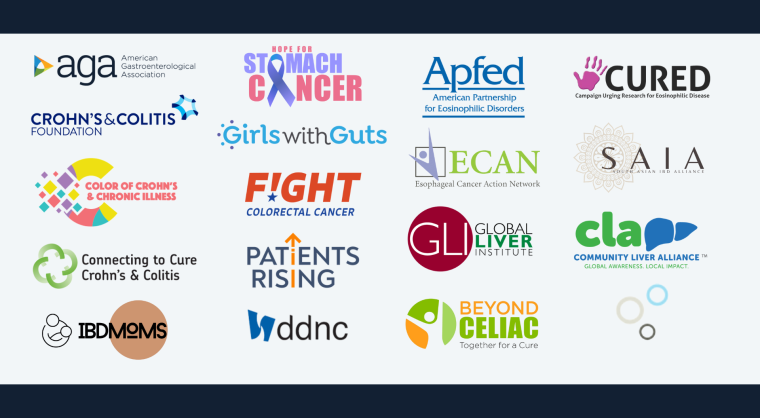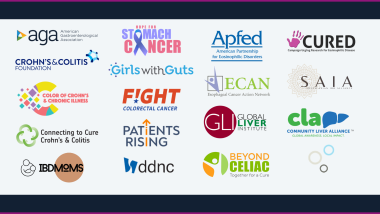WASHINGTON, DC (Dec. 12, 2023) – The American Gastroenterological Association (AGA) and 17 leading patient advocacy organizations submitted a letter today to UnitedHealthcare (UHC), one of the nation’s largest and most profitable health insurers, to reverse its obstructive policies that threaten to disrupt its 27.4 million commercial beneficiaries’ access to virtually all endoscopies and colonoscopies.
Specifically, the letter details the impact of UHC’s hastily rolled-out Advance Notification Program, which lays the foundation for the implementation of UHC’s GI endoscopy “Gold Card” prior authorization program in early 2024. By requiring GI practices to spend hours providing UHC with data duplicative of what is already provided in claims forms, UHC’s Advance Notification Program has created major administrative burdens that slow down patient care. The insurance giant’s 2024 prior authorization program is expected to cause even more delays for the critical GI diagnostic and surveillance procedures that save lives and are crucial to millions of Americans.
Despite multiple requests from AGA and other stakeholders for more details and the rationale for these two programs since June, UHC has been non-receptive. To date, it has ignored outreach from the gastroenterology community to ensure patient care will not be disrupted. With approximately one month before UHC’s timeline of “early 2024,” both physicians and patients have been left in the dark about the insurer’s prior authorization plans.
Patient advocacy groups that signed onto the letter include:
- American Partnership for Eosinophilic Disorders
- Beyond Celiac
- Color of Crohn’s & Chronic Illness
- Community Liver Alliance
- Connecting to Cure Crohn’s and Colitis
- Crohn’s & Colitis Foundation
- CURED Foundation
- Digestive Disease National Coalition
- ECAN Esophageal Cancer Action Network, Inc.
- Fight Colorectal Cancer
- Girls With Guts
- Global Liver Institute
- Hope for Stomach Cancer
- IBDMoms
- IBS Patient Support Group
- Patients Rising
- South Asian IBD Alliance (SAIA)
“Patients with chronic GI conditions should not have to live in fear and anticipation of delays in treatment while their conditions worsen. The ‘care’ following health seems to be lost in these policies that question the expertise of physicians and put beneficiaries at risk,” the groups wrote. “We have a shared goal of continuing to build an innovative and cost-effective healthcare system that doesn’t lose sight of what should be a priority common to all: improved outcomes for patients that enhance their quality of life – and that includes their ability to receive timely and equitable access to vital GI care.”
Research suggests there is an unmet need for colonoscopies in the United States meaning there is an underutilization of this crucial procedure. AGA will continue to work closely with its members and patient advocacy groups to ensure access to medically necessary procedures.
“Endoscopies and colonoscopies are not routine medical procedures with little consequence; they are lifelines for millions of Americans,” the letter also states. “These procedures play a vital role in the early detection, diagnosis, and monitoring of a wide range of gastrointestinal conditions, including colorectal cancer (the second leading cause of cancer death in the U.S.), inflammatory bowel diseases such as Crohn’s disease and ulcerative colitis, and other serious gastrointestinal disorders like eosinophilic esophagitis, Barrett’s esophagus, and cancers. Subjecting these procedures to prior authorization will introduce unnecessary barriers and delays that threaten the health and lives of patients.”
###
About AGA Institute
The American Gastroenterological Association is the trusted voice of the GI community. Founded in 1897, AGA has grown to more than 16,000 members from around the globe who are involved in all aspects of the science, practice, and advancement of gastroenterology. The AGA Institute administers the practice, research, and educational programs of the organization. For more information, visit www.gastro.org.
Learn more about how UHC’s planned GI prior authorization policy will affect patients and practices at www.gastro.org/StopUHC.













